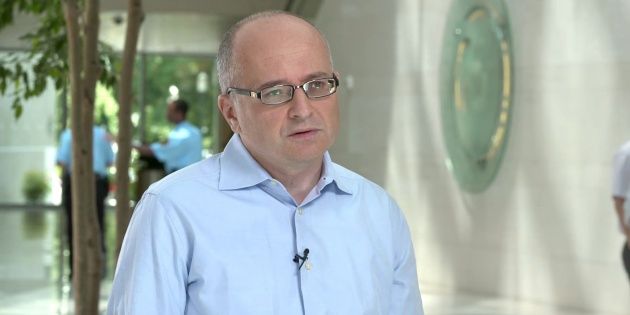Throughout 2023, Argentina and its citizens have been suffering from extreme hyperinflation. By November of last year, annual inflation surpassed 160% – faster than expected and the highest monthly figure of the year.
Thursday’s official data showed that Argentina’s annual inflation rate ended at 211.4%, the highest since the early 1990s.
This coincided with the election of President Javier Milei in December. Milei – a libertarian who swept from obscurity to the top office vowing to chainsaw spending – has made clear his intentions to right Argentina’s economy, and the government recently devalued the peso by more than 50% as part of a wider effort to stabilize the economy and refill the country’s coffers.
As part of his controversial draft bill, Milei has outlined plans that would declare domestic and foreign crypto holdings could win Argentines a favorable tax rate and legalize the use of those assets in the country, regardless of their origin or where they are held. This is known as the “asset regularization program” within the bill.
Although the bill is already facing heavy backlash and protests, the inclusion of policies around cryptocurrencies and decentralized finance (DeFi) doesn’t come as a huge surprise given that Milei often praised bitcoin (BTC) during his election campaign.
In all, Milei announced over 300 measures to deregulate much of Argentina’s economy, a move which has been called unconstitutional by some observers. Yet poverty levels in Latin America’s third-biggest economy are now at 40 percent which highlights the need for wide-ranging economic and political reforms in some manner.
Given that there was an increase in individuals working for content platforms, over the past 12 months, it seems Argentina’s citizens are looking to the digital economy independent of the political headwinds in their country for a number of reasons.

How content offers stable revenue
Far from being limited to teenagers competing in dance trends, content creators in 2024 are often experts and trained professionals who see the value in terms of reach that new broadcast channels offer.
According to information from Contnt – a newly launched platform that is decentralized, democratized, free and fairly monetized – journalism and reporting is one class of influencer that’s rapidly growing in popularity.
Indeed, many reporters from more traditional journalist backgrounds are turning towards the influencer model and harnessing the reach of platforms including TikTok.
Sophia Smith Galer, a former Vice and BBC reporter, creates TikTok videos which report the news often commanding 16 million views, while Dylan Page, who covers the day’s top news stories for his 10 million TikTok followers.
In Argentina, this trend can also be seen playing out in real-time. Sofía Terrile, an economics reporter for TN (Todo Noticias), one of Argentina’s leading news channels, is one journalist using broadcast channels to share her work, disseminate credible information and engage audiences who have tired of traditional newsrooms. While Terrile sees this as an act of public service, new steps towards a decentralized financial system and framework for digital assets would ensure reporters like Terrile receive proper revenue for their valuable contributions.
Said Stuart Meczes of Contnt, “The situation unfolding in Argentina is a prime example of how digital assets and solutions can help everyday individuals improve their economic situation, receive fair contributions for their work and protect personal ownership.”
“In doing so, creators can create a sustainable form of revenue meaning they continue creating valuable, meaningful content for audiences,” added the executive.
Alternative currencies offer hope in Argentina
Bitcoin in Argentina hit an all-time high against the local currency in Dec 2023 in the wake of the Milei’s move to devalue the local currency by 50%. In addition, Bitcoin – along with a host of other cryptocurrency – can now be used in the country as a legal form of payment for goods and services.
This represents a huge opportunity for Argentina’s content creators living through the current economic crisis. New creator platforms like Contnt provide a way to effectively monetize their work and – if payment is received in crypto – they stand to win out on the current exchange rates.
In turn, this could also stem the rate at which young, talented digital professionals are leaving the country to seek better opportunities abroad, having a stabilizing impact on the country in the long term.
Disclosure: This article mentions a client of an Espacio portfolio company.










